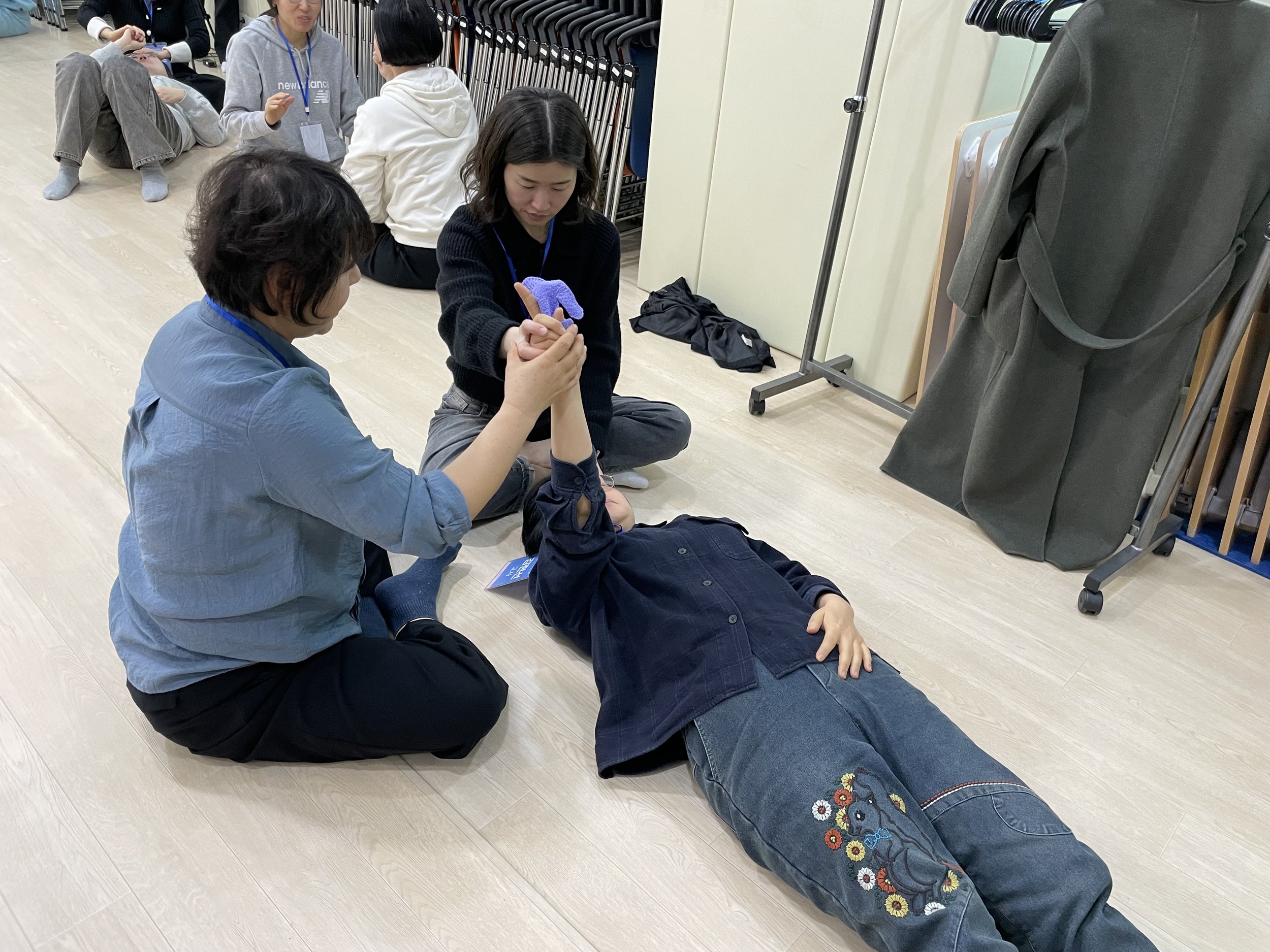IGNIS' 6th Cohort Training in Neurodevelopment
On March 2nd, Ignis Community began training the 6th cohort of mothers raising children with special needs. Three new families have joined another twenty-seven returning families for this 6th cohort, making a total of 30 families participating in the program.
This time several special education teachers and a physical therapist also attended lectures. After training, the physical therapist approached us to talk further. "Your training complements everything I have learned," he exclaimed. "It's great that the parents are being trained in this, and I believe it's a great need in Korean society. No other training exists for families, and it would be great if we could implement it throughout the country," he confessed. His encouragement gave us affirmation to continue working towards the expansion of this program.
Instructing Mothers in the Neurodevelopmental Approach
As we were leaving that day, a mother approached us and shared with us a picture of her son getting his haircut. Her son has severe autism. He is for the most part nonverbal and trapped in his own world. It typically took five people to hold him still in order for him to receive a haircut, but after months of implementing the Neurodevelopmental Approach there has been a significant change. That day she showed us a picture of him sitting still with only one person- the hairdresser- cutting his hair. For her son, this was nothing short of a miracle!
Children are continuing to make small strides towards their fullest potentials. One participant in the program told us that a special education teacher was impressed by the progress one child in the program has made. This particular child used to be violent and very difficult to control in school. But through Ignis’ nutritional and therapeutic programs, he is like a different person. He still has a developmental disability, but he is now gentle and kind when he used to be aggressive.
Similar to the 5th cohort, four mothers are becoming certified in screening training as they assist throughout the program. Instead of us explaining everything, these assistants explained in precise detail how to practice various neurodevelopmental activities. From their experiences with their own children, they are now helping other mothers with disabled children, equipped with deep understanding and compassion.
Recently Trained Mothers Guiding New Mothers in Neurodevelopmental Activities
These new trainers are vessels of hope. They are the ones who truly make this program work. They are present every week working with the families, encouraging and guiding parents, and struggling together with each family’s children.
One incredible development we just began working on is creating a phone application for families journeying in the Neurodevelopmental Approach, thanks to a young teenage volunteer within our program who has passion to develop the program in a more constructive way. With her interest and expertise in information technology, she has volunteered to help develop an application for families journeying through this program.
Once this new application is complete, it will help families remain consistent in their training as well as help clarify for them what training they actually need to do. When mothers attempt to do this program on their own, they often fail. But with this application, we will be able to recommend specific neurodevelopmental activities for each child. Families will be able to see the specific exercises their child can benefit from, view instructions for how to implement the exercises, and record the progress their child makes. A key function of the application will also be a timer to help families maintain a routine schedule and consistency in implementing training with their child.
Mothers Practicing Neurodevelopmental Activities
Faithful dedication and constant discipline are required for mothers to witness a breakthrough in their children. An application like this is not only important but essential in this process. Only with consistency, families begin to witness their child move from one developmental milestone to the next and experience incredible breakthroughs.
As we anticipate North Korea’s borders to reopen later this year, Ignis Community plans to implement this same approach through community-based rehabilitation (CBR) centers throughout the DPRK. In this way, eventually the skills and expertise Ignis is teaching these mothers will be used to not only help other families within their immediate surroundings but also to expand this outreach throughout the entire Korean Peninsula.


